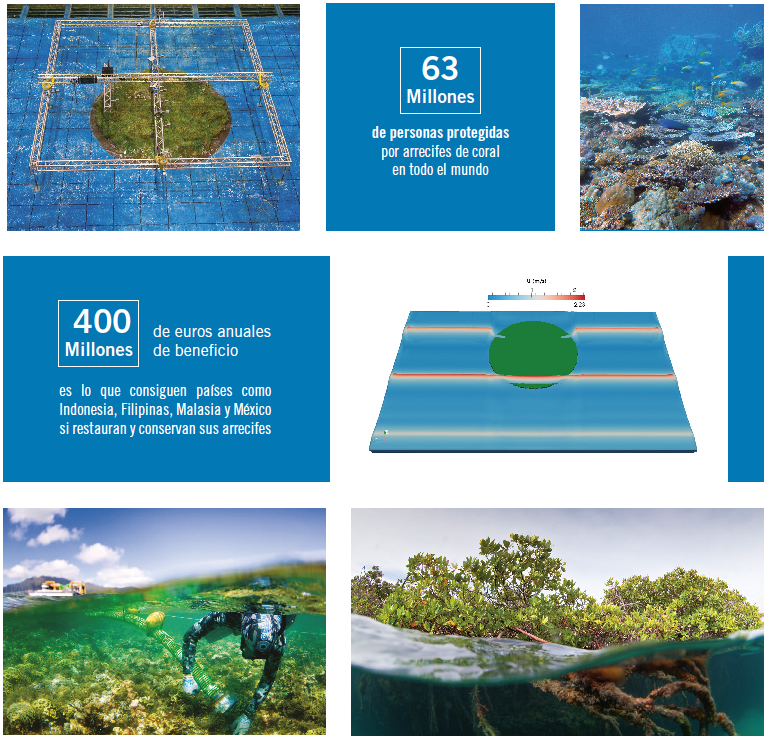NATURAL CAPITAL SERVING SOCIETY
The term natural capital refers to the reserves of natural assets present on the planet. From these reserves, mankind obtains a broad set of services, generally called ecosystem services, that make life as we know it possible. The concept of natural capital is strongly related to economic studies that analyze the feasibility of meeting sustainability objectives.
“Integrating the values of ecosystems into planning to promote their conservation”
Coastal ecosystems such as coral reefs, mangroves, Posidonia meadows and others present on the world’s coasts play an essential role thanks to the coastal protection services they offer, reducing the risks of flooding and erosion. In addition, these ecosystems offer other services, such as tourism and fishing, that make preserving them essential for society.
There are three fundamental mechanisms through which coastal ecosystems provide protection: attenuating waves and meteorological tides, and maintenance of the coastline level. The presence of corals primarily serves to break up waves, functioning as a submerged artificial dam, while the roots, stems and leaves of mangroves, Posidonia and algae act as friction generating elements that reduce the effects of marine dynamics. Reducing these dynamics also serves to retain sediment, which helps keep ground levels constant.
IHCantabria investigates the relationship between the status of the ecosystem and its capacity to provide these services. This allows introducing these processes into flood and erosion models and calculating the natural capital of any location in the world. Although it is impossible to completely reduce risks on the coast, the Institute works to ensure that the role played by coastal ecosystems is incorporated into risk management frameworks. This work contributes to the use of green, or natural, solutions to defend the coast, instead of artificial solutions. This benefits conservation policies and helps keep coastal ecosystems in good condition. In collaboration with The Nature Conservancy (TNC) and the World Bank (WB), IHCantabria is developing tools, guidelines and best practices that are leading some countries to incorporate natural capital into their national accounts. As a result, we have analyzed the level of protection provided by coral reefs throughout the world, and, for the Government of the Philippines, the protection offered by mangrove fields. This work, which links basic research with political action, is only possible through a multidisciplinary approach in which physics, engineering, ecology and economics work together to yield an impact that allows us to achieve our sustainability objectives.




